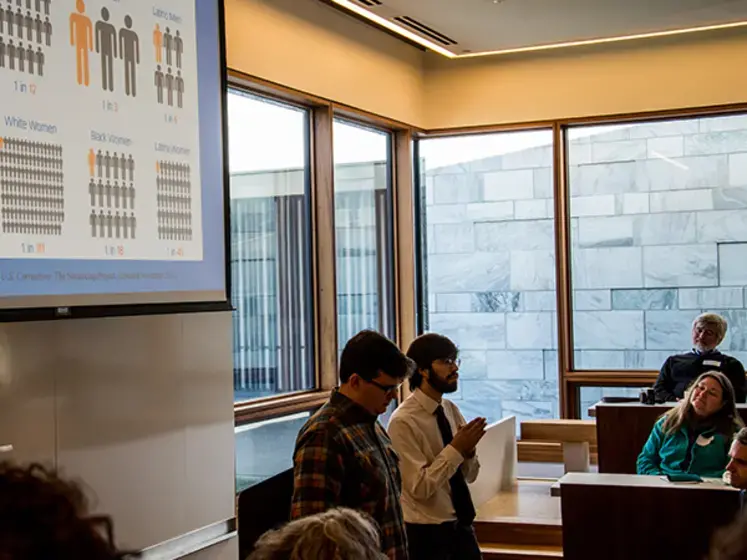There is Still Much to Do
Criminal Justice Reform in Vermont
Thesis by Ben Simpson '16
Abstract: The United States imprisons a higher rate of its population than any other country in the world. The costs of this punitive approach are growing, and the public safety returns are minimal. This report provides reviews of evidence-based policies that can be used to reduce Vermont’s criminal justice population without sacrificing safety.


The policy suggestions offered are based on reviews of the scientific literature, and are tailored for the Vermont context. Driving while intoxicated crimes contribute to the prison population, and are a serious risk to public safety. Vermont should use ignition interlock devices (IID), an evidence-based tool that reduces recidivism for driving while intoxicated crimes. Second, Vermont should consider removing monetary bail, and continue to evaluate the ongoing Windham county electronic monitoring program in order to reduce the number of people held pretrial, a practice that harms the defendant, the public, and the corrections system. Most Vermonters under criminal justice supervision are in the probation and parole programs; the state should consider implementing a modified probation and parole system based on the examples laid out in this report in order to reduce costs and recidivism. Fourth, Vermont’s growing elderly prisoner population constitutes a very significant cost driver for the state. Vermont should consider implementing a system of compassionate release for elderly prisoners that do not pose a risk to the public. The suggestions for reforms in this report constitute only a small fraction of the important work ongoing to use evidence in search of a more perfect justice. It is the sincere hope of the Bennington College Incarceration Task Force that this report contributes to the ongoing dialogue within the state, and helps spur a new vision for criminal justice in Vermont.